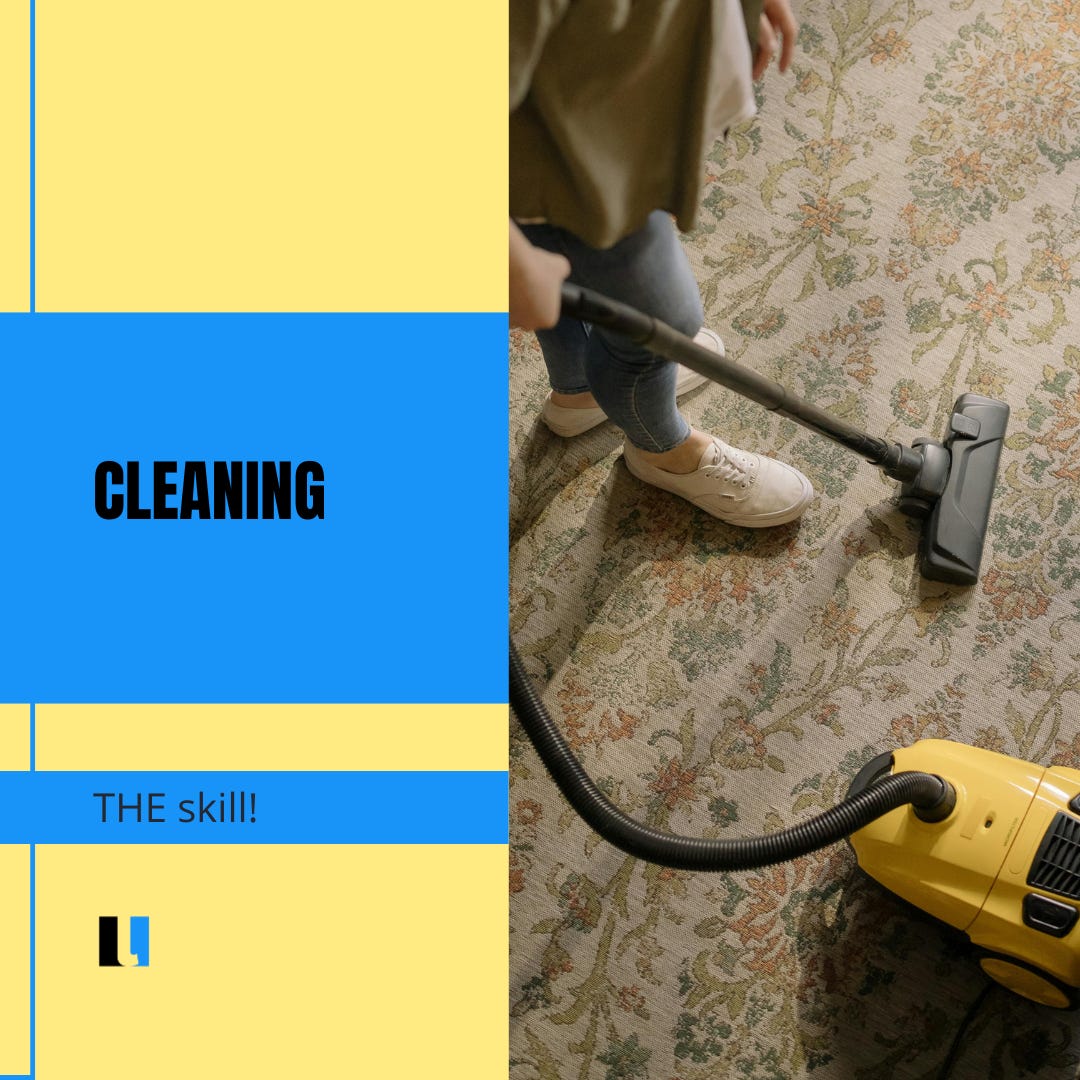What Every Manager Should Teach Their Teams
Cleaning. And three others.
Lunch in the office.
The office kitchen is a place to quickly pass by because the tables are full of crumbles. The kitchen counter is full of dirty dishes, and the carpet has stains.
How the kitchen looks might show the state of project folders.
People don’t like cleaning. They could not be bothered. Someone will do it. Eventually. Or not.
Yet, there is no mum to clean after them. There is a manager, instead.
What should managers be doing, then?
1. Clean up your mess before it grows legs and walks away!
Managers want their team members to have fun and grow skills. They think about how to help them with:
Communication skills
Problem-solving skills
Time management
Adaptability
Motivation
Proactivity
etc.
Yes, they are important. But don’t we forget about the basics? Things, no one can successfully work without?
You’ve got it. Hygiene.
Children are taught how to take care of their environment all the time. Parents want them to be self-sufficient and responsible members of a household.
Managers? They read too much about listening, caring, and flexibility.
In practice, you work with a team that needs solid ground and basics. It does not work without it. A typical example is project folders, usage of communication channels, and templates.
You have a standardized structure for each project. It’s a copy-paste (yes, that's simple!). You save the correct files in the correct folder.
Hmmm. In theory.
People don’t keep the structure. They don’t clean folders or save the final materials where they should be. Tell me why?
They do it once, twice, three times. You will never find anything when you go back to the projects. It’s a mess!
Every manager should teach their team members to clean, e.g.:
How to use standardized template, structure, and process.
How to communicate what and where.
How to share knowledge.
How to prioritize tasks.
How to stay organized and use digital tools.
You don’t want crumbles everywhere. You want a clean table. Cleaning your mess is a sign of respect. That is the message your team members need to hear.
Repeatedly. Bother them until they get it right.
2. Take feedback like an adult!
A friend of mine, who is the CEO of a start-up, has recently told me he cannot give feedback to GenZ workers, since they become too sensitive and meltdown.
Imagine what your parent would tell you:
“Don’t you want to get better at what you do? Stop making excuses and listen!”
Managers should teach their teams how to give constructive feedback without causing harm or defensiveness. Holding each other accountable is the way towards collaboration.
No feedback = no collaboration.
If someone’s telling you what went wrong, it’s to help you, not to bring you down. Even managers learn from their mistakes (at least some!).
We are not perfect and we need to hear what we should be working on. That is how you take feedback like an adult.

☛ Check: The big feedback guide
3. Why are you staring at your phone?
You’re supposed to be working, not scrolling through Instagram!
Do you have a mouse mover? So, you can be always “green” even if you don’t work? It is easy to get distracted in the office and at home. Social media, chit-chat, and endless notifications.
Maintaining focus is what everyone misses these days.
How much do you stay on task and get it done?
Managers should teach their teams how to stay focused, minimize distractions, and create an environment where deep work works.
A few ideas:
Dedicate one meeting room to a private study. So, anyone can book it when they need to focus.
Change the layout of the office.
Create a phone shell to leave the phones behind when having a meeting.
Setting specific “no-interruption” periods (no “do you have a minute”?)
Again boundaries are necessary to handle your personal and professional distractions in check.
4. Don't leave your work for someone else to fix!
You probably read about accountability before:
So, why is there always a half-finished project left lying around in your team? Why do people start something, but then fail to take it to the finish line?
Time management? Stress? Too much to do?
The big question I have been asked the past few months has been how to make people own their work.
It comes down to clear expectations, deadlines, and a culture of completion. When you recognize those who consistently finish their work on time and to a high standard, it will become a positive inspiration for others.
When they finish, I can do it, too.
Of course, if team members are struggling to complete tasks, offer support and training. Unfinished work could be a sign of a knowledge gap or capacity issues.
Don’t fix it for them. Help them push through and finish strong. They are the owners, you are a little Santa helper. (Anyone else is feeling Christmas slowly in the air?)
TL;DR
Managers sometimes think their team knows everything they should.
That’s a false assumption.
You need to tell them what you need and want. Timesheets done by Friday noon? Everyone in the office on Monday morning at 10? A monthly budget report?
Communicate. Teach. Remind. Teach again. Until it’s done consistently.
Management job is not easy. You will be a bad teacher. But not for long, if you have good students.
Have a good one, Ivona
On the menu:
Monday Case Study: How to Use Skill-Will Matrix in Practice
Thursday Newsletter: 5 Leadership Skills You Learn in a Short Time







